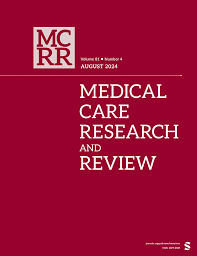
State Full Practice Authority Regulations and Nurse Practitioner Practice Autonomy: Evidence From the 2018 National Sample Survey of Registered Nurses
Eric Slade, Laura Samuel, Kelli DePriest, Yvonne Commodore-Mensah, Ginger C. Hanson, Rita D'Aoust
State full practice authority (FPA) laws are designed to permit NPs to practice autonomously from physicians. Little is known regarding how FPA laws affect NPs’ practice autonomy in daily practice. This study used nationwide survey data from 20,830 NPs to estimate how NPs’ practice autonomy differs between NPs in FPA and non-FPA states. NPs in states with FPA laws were more than twice as likely as NPs in non-FPA states to practice in clinic settings with no onsite physicians and were twice as likely to not have a physician collaborator. Associations between FPA laws and four other indicators of practice autonomy were positive but smaller in magnitude. States with FPA laws more than 10 years experienced larger changes in nurse practitioner (NP) autonomy compared with states with FPA laws in effect less than 10 years. FPA laws may promote the development of autonomous NP practice sites, thereby expanding access in underserved populations.
Slade EP, DePriest K, Commodore-Mensah Y, Samuel L, Hanson GC, D’Aoust R. State Full Practice Authority Regulations and Nurse Practitioner Practice Autonomy: Evidence From the 2018 National Sample Survey of Registered Nurses. Medical Care Research and Review. 2025;82(1):68-78. doi:10.1177/10775587241282163
